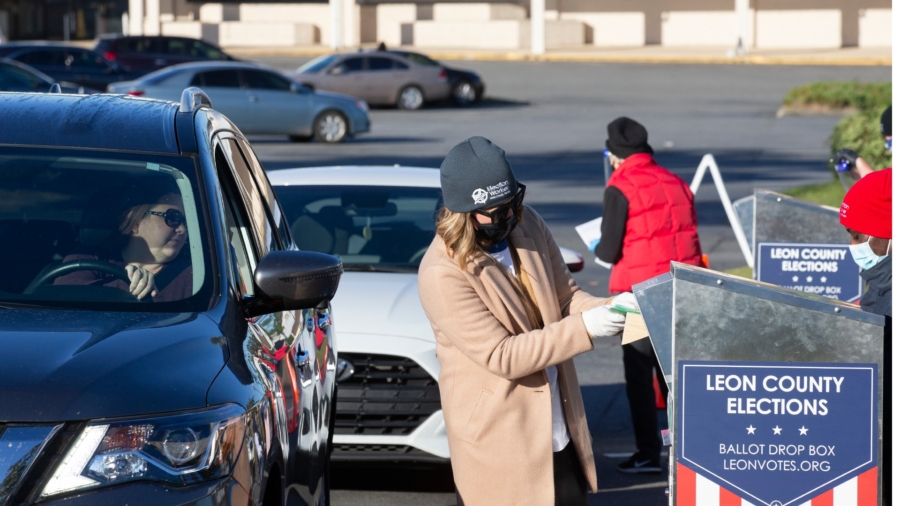A Florida Senate committee approved a revamped elections bill that would ban drop boxes used for mail-in ballots.
The panel on March 10 voted 4–2 to approve the proposal, known as Committee Substitute Senate Bill 90, which would, among other provisions, prohibit an immediate family member from picking up a voter’s ballot. It would also require vote-by-mail ballots to be requested during each election cycle instead of every two election cycles.
The bill also increases the requirements for voter identification when requesting a mail-in ballot via telephone, and would prevent election officials from sending mail-in ballots to people who hadn’t requested them first.
The measure’s sponsor, Sen. Dennis Baxley, a Republican from Ocala, stated that the proposed changes are designed to safeguard future elections. He said many of the boxes are being left unsupervised and form a “real security concern,” Politico reported.
Baxley, who is also Chairman of the Senate Ethics and Elections Committe, had released the reworked elections proposal on Tuesday.
“I just want to maintain that chain of evidence from the time they vote to the time until they get counted so we don’t have a mishap,” Baxley said, adding that citizens will still be able to mail their vote or bring it to the office, according to the outlet.
The Senate decision comes amid a push by lawmakers in various states, including Georgia, to increase the requirements for voters to obtain mail ballots and restrict the usage of drop boxes following the 2020 election. Republicans and former President Donald Trump have asserted that unsolicited mail-in balloting—as opposed to requested absentee ballots—increases the chance for potentially fraudulent activity and irregularities.

During the 2020 elections, Trump wrote on Twitter that the absentee mail-in ballot system used in Florida is “safe and secure, tried and true,” and encouraged people to request a ballot.
Baxley’s move on Tuesday had drawn some criticism from local election supervisors. Pasco County Supervisor of Election Brian Corley, a Republican, said the proposal is “a solution looking for a problem.”
Because of the CCP (Chinese Communist Party) virus pandemic, more people in the Sunshine State have voted by mail during the 2020 elections than in previous elections.
In all, about 44 percent of voters cast their votes by mail with Democrats making up the largest proportion of those voters. More than 2.18 million Democrats used mail-in ballots compared to 1.5 million Republican voters.
Florida Gov. Ron DeSantis in February proposed a bill to enact a number of restrictions on mail-in voting, including banning unsolicited mail-in ballots, and requiring that mail-in ballot requests must be made each election year.

Initially filed by Baxley earlier this year in February, he sought to restrict vote-by-mail requests for the 2022 elections and also limiting the duration of future requests to one election cycle.
That legislation cleared its first committee by a narrow party-line vote, Politico reported. The new proposal could be expanded Wednesday to include the mail drop container ban and a crackdown on who can pick up mail-in ballots.
Jack Phillips contributed to this report.


